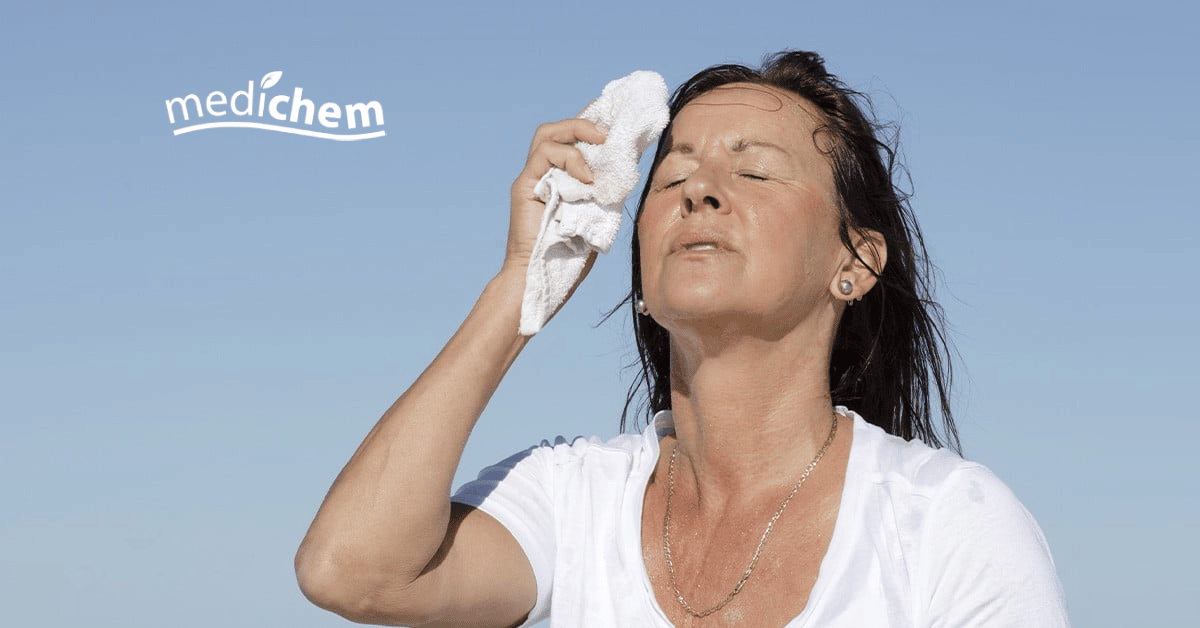What Is Heat Exhaustion?
Heat exhaustion is a condition whose symptoms may include heavy sweating and a rapid pulse, a result of your body overheating.
It’s one of three heat-related syndromes, with heat cramps being the mildest and heatstroke being the most severe.
Causes of heat exhaustion include exposure to high temperatures, particularly when combined with high humidity, and strenuous physical activity.
Without prompt treatment, heat exhaustion can lead to heatstroke, a life-threatening condition. Fortunately, heat exhaustion is preventable.
Symptoms Of Heat Exhaustion
Signs and symptoms of heat exhaustion may develop suddenly or over time, especially with prolonged periods of exercise. Possible heat exhaustion signs and symptoms include:
- Cool, moist skin with goosebumps when in the heat
- Heavy sweating
- Faintness
- Dizziness
- Fatigue
- Weak, rapid pulse
- Low blood pressure upon standing
- Muscle cramps
- Nausea
- Headache
Should I See A Doctor?
If you think you’re experiencing heat exhaustion, follow these steps.
- Stop all activity and rest
- Move to a cooler place
- Drink cool water or sports drinks
Contact your doctor if your signs or symptoms worsen or if they don’t improve within one hour. If you are with someone showing signs of heat exhaustion, seek immediate medical attention if he or she becomes confused or agitated, loses consciousness, or is unable to drink.
You will need immediate cooling and urgent medical attention if your core body temperature (measured by a rectal thermometer) reaches 104 F (40 C) or higher.
What Causes Heat Exhaustion?
Your body’s heat combined with environmental heat results in what’s called your core temperature — your body’s internal temperature.
Your body needs to regulate the heat gain (and, in cold weather, heat loss) from the environment to maintain a core temperature that’s normal, approximately 98.6 F (37 C).
Your body’s failure to cool itself
In hot weather, your body cools itself mainly by sweating. The evaporation of your sweat regulates your body temperature. However, when you exercise strenuously or otherwise overexert in hot, humid weather, your body is less able to cool itself efficiently.
As a result, your body may develop heat cramps, the mildest form of heat-related illness. Signs and symptoms of heat cramps usually include heavy sweating, fatigue, thirst and muscle cramps. Prompt treatment usually prevents heat cramps from progressing to heat exhaustion.
You usually can treat heat cramps by drinking fluids or sports drinks containing electrolytes (Gatorade, Powerade, others), getting into cooler temperatures, such as an air-conditioned or shaded place, and resting.
Dehydration
Dehydration reduces your body’s ability to sweat and maintain a normal temperature.
Alcohol Use
Alcohol use can affect your body’s ability to regulate your temperature.
Overdressing
Overdressing, particularly in clothes that don’t allow sweat to evaporate easily can lead to heat exhaustion.
Risk Factors Associated With Heat Exhaustion
Anyone can develop heat exhaustion, but certain factors increase your sensitivity to heat. They include:
Age
Infants and children younger than 4 and adults older than 65 are at higher risk of heat exhaustion. The body’s ability to regulate its temperature isn’t fully developed in the young and may be reduced by illness, medications or other factors in older adults.
Certain Drugs
Medications that affect your body’s ability to stay hydrated and respond appropriately to heat include some used to treat high blood pressure and heart problems (beta blockers, diuretics), reduce allergy symptoms (antihistamines), calm you (tranquillisers), or reduce psychiatric symptoms such as delusions (antipsychotics).
Additionally, some illegal drugs, such as cocaine and amphetamines, can increase your core temperature.
Obesity
Carrying excess weight can affect your body’s ability to regulate its temperature and cause your body to retain more heat.
Sudden temperature changes. If you’re not used to the heat, you’re more susceptible to heat-related illnesses, such as heat exhaustion.
Travelling to a warm climate from a cold one or living in an area that has experienced an early heat wave can put you at risk of a heat-related illness because your body hasn’t had a chance to get used to the higher temperatures.
Complications With Heat Exhaustion
Untreated, heat exhaustion can lead to heatstroke, a life-threatening condition that occurs when your core body temperature reaches 104 F (40 C) or higher.
Heatstroke requires immediate medical attention to prevent permanent damage to your brain and other vital organs that can result in death.
Heat Exhaustion Prevention
You can take a number of precautions to prevent heat exhaustion and other heat-related illnesses. When temperatures climb, remember to:
Wear loose fitting, lightweight clothing. Wearing excess clothing or clothing that fits tightly won’t allow your body to cool properly.
Protect against sunburn. Sunburn affects your body’s ability to cool itself, so protect yourself outdoors with a wide-brimmed hat and sunglasses and use a broad-spectrum sunscreen with an SPF of at least 15. Apply sunscreen generously, and reapply every two hours — or more often if you’re swimming or sweating.
Drink plenty of fluids. Staying hydrated will help your body sweat and maintain a normal body temperature.
Take extra precautions with certain medications. Be on the lookout for heat-related problems if you take medications that can affect your body’s ability to stay hydrated and dissipate heat.
Never leave anyone in a parked car. This is a common cause of heat-related deaths in children. When parked in the sun, the temperature in your car can rise 20 degrees Fahrenheit (more than 11 C) in 10 minutes.
It’s not safe to leave a person in a parked car in warm or hot weather, even if the windows are cracked or the car is in shade. When your car is parked, keep it locked to prevent a child from getting inside.
Take it easy during the hottest parts of the day. If you can’t avoid strenuous activity in hot weather, drink fluids and rest frequently in a cool spot. Try to schedule exercise or physical labor for cooler parts of the day, such as early morning or evening.
Get acclimated. Limit time spent working or exercising in heat until you’re conditioned to it. People who are not used to hot weather are especially susceptible to heat-related illness. It can take several weeks for your body to adjust to hot weather.
Be cautious if you’re at increased risk. If you take medications or have a condition that increases your risk of heat-related problems, such as a history of previous heat illness, avoid the heat and act quickly if you notice symptoms of overheating. If you participate in a strenuous sporting event or activity in hot weather, make sure there are medical services available in case of a heat emergency.
Welcome To Medichem
Welcome to Medichem. We have developed this website to provide the public with high quality, affordable first aid supplies.
Our website consists of a wide-variety of content relating to first-aid kits and supplies. Our helpful blogs will keep you up to date on the most current information and advice around health and safety requirements and new products available as well as providing industry specific insights from health and safety managers and pre-hospital care professionals who between them have hundreds of years of experience.
If you are looking to restock your office first aid kit or ensure that your sports first aid kits at your club contain all of the essential products that you need, Medichem.ie is the site for you.
View our full range of first-aid products on our online shop. Do you have a specific question or query? Contact Medichem today. A member of our team will be more than happy to help.


